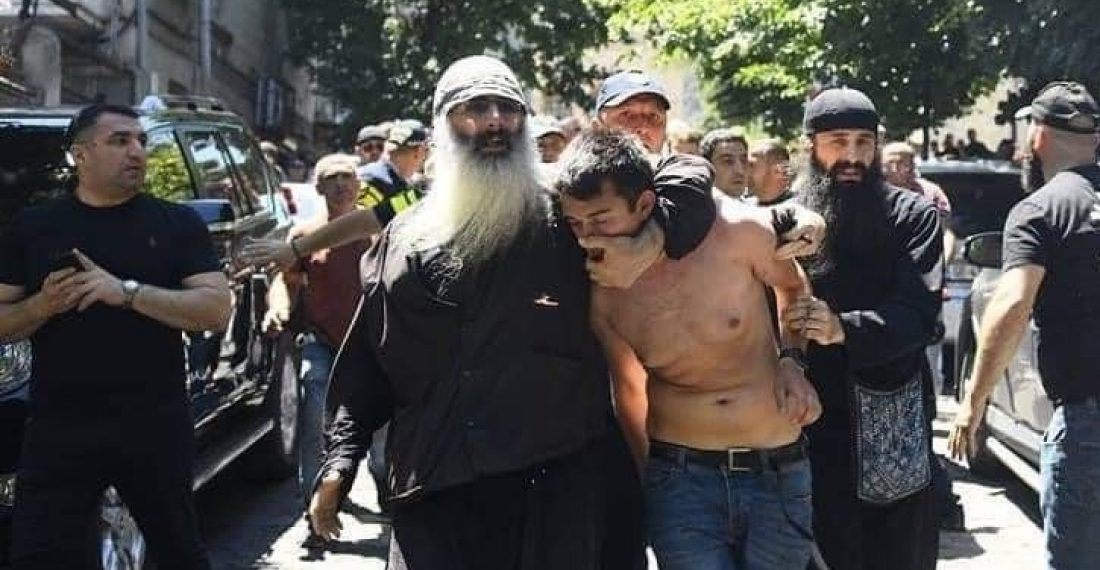Far right protestors tore down the European flag from in front of the Georgian parliament and burnt it on Tuesday night (6 July) amid ongoing tensions in Tbilisi as vigilantes attempted to violently disrupt Pride Week activities.
On Monday, a planned rally on the occasion of Pride Week which was supposed to highlight the demands for dignity, and non discrimination against Georgia' embattled gay and lesbian community, had to be cancelled after far right protestors, some instigated by Orthodox clergy, threatened to violently prevent it. The offices of the local LGBT organisation were ransacked, and dozens of journalists were attacked as they tried to cover events on Monday, with many suffering injuries and needing hospitalisation.
The incidents have caused outrage among civil society groups in Georgia and the international community. Those supporting the right of gay groups to march on Tuesday evening organised their own silent protest in front of the the Georgian parliament. But the gathering once more was subject to attempts by far right vigilante groups to disrupt it. Vigilantes at some point succeeded to reach the European flag which has flown next to the Georgian flag in front of the Georgian Parliament for nearly two decades, and they tore it down and burned it.
The incident has caused further disquiet amongst pro liberal circles in Georgia who accuse the government of not doing enough to control the far right groups that have been violently disrupting public order.
The Georgian police, who appeared to be passive during the incidents on Monday took a tougher line on Tuesday, with dozens of right wing demonstrators arrested as they tried to break through police line.
source: commonspace.eu
photo: Orthodox priests appeared to be playing a leading role in an eruption homophobic protests in Tbilisi this week (picture courtesy of IPN, Tbilisi)






